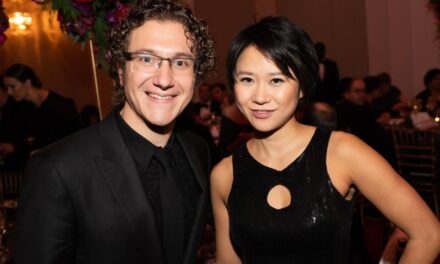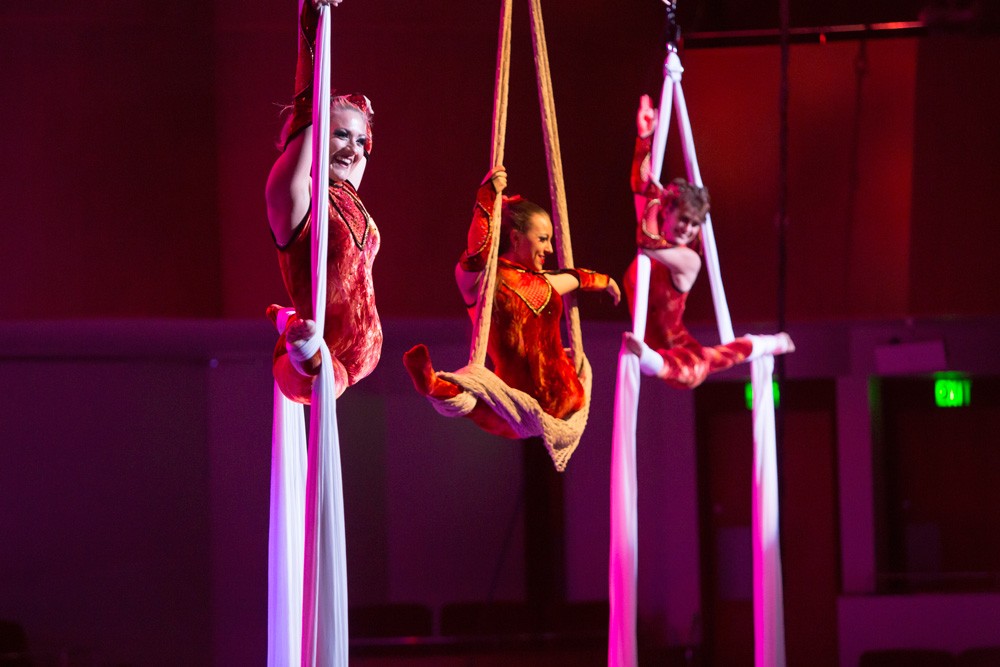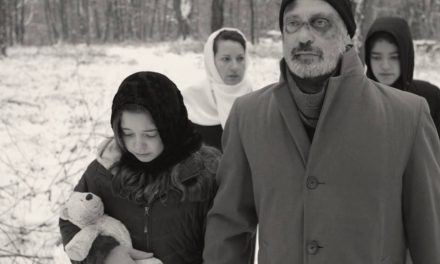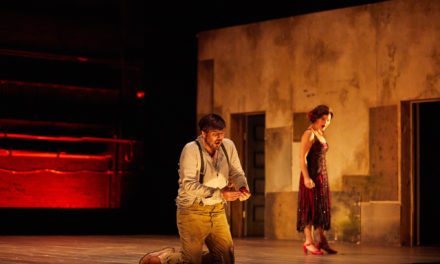Andrew Tyson
Rachmaninoff’s Third
Louisville Orchestra
Teddy Abrams, conductor
Andrew Tyson, guest pianist
Review by Annette Skaggs
Entire contents are copyright © 2017 Annette Skaggs. All rights reserved.
Talk about a dynamic and emotional rollercoaster of a performance! This weekend our Louisville Orchestra gifted the community with pieces of Russian descent: Ljova’s Current, Sergei Rachmaninoff’s Piano Concerto No. 3 in D Minor (commonly called Rachmaninoff’s Third) and Dmitri Shostakovich’s Symphony No. 11 in G Minor.
I am fairly certain that you are familiar with Rachmaninoff and Shostakovich, but not so much Ljova. Fear not, I have a feeling that this will not be the last we hear of this talented, young composer from Moscow. While Ljova is what he prefers to be called, his real name is Lev Zhurbin, the son of Alexander Zhurbin, a highly respected composer in and around Moscow. When his parents moved to New York in the 1990’s he immediately took violin lessons and then graduated from Julliard. Since then he has been busy composing and playing for concert halls and films, and his compositions now number over 70 pieces. Of this commission from the Louisville Orchestra and Banff Center of Canada, Ljova says, “Current was so inspired by the landscape of currents, and by taking a look at the orchestra as a group of individuals coming together to interpret a piece not as a singular unit but in a more personalized way.” Ooh, boy, he’s not kidding. In watching the performance I questioned whether varying sections and/or individuals were on the right pages of the score. Rhythms and time signatures seemed to be of little consequence; there was dissonance and it was fitting. Short notes were extremely short. 16ths? 32nds? Perhaps. All I know is that it was interesting watching our string players play their instruments so vigorously. The basses and percussion hit notes so low that I could feel a vibration on the floor all the way to where I was sitting, which was pretty far back. And when audiences are used to noting the finality of a piece with a closing cadence, we were instead given the end by a shrug and a nod from Maestro Abrams. This piece was bold, brash, daring, and I wanted at least another 15 minutes of its savory goodness. I hope to hear more from Ljova in the near future.
After the blazing Louisville premiere of Currents, I believe that Rachmaninoff’s Third was the perfect second course. How lucky we were to get the young and talented Andrew Tyson to help deliver this morsel of music. It is easy to see and hear why he was hailed by BBC Radio as, “a real poet of the piano.” His resume is long and extraordinarily impressive for someone his age, and he delivers. Positioning himself at our Steinway, Mr. Tyson sat with a straight back and watched the Maestro while a solo cello, horns, and clarinets began. As the orchestra joined upon the first strike of the piano, the music exuded elegance. The first movement, Allegro ma non tanto, is quiet and unassuming, with layers of themes building upon one another that lead to a quiet coda. The second movement, Intermezzo: Adagio, is romantic in its theme. While the orchestra plays a predominant melody, the piano answers with hints of themes from the previous movement, before moving into the third movement without a break: Finale: Alla breve. As I listened to this piece variations of the first movement’s themes twisted and bent throughout, while Mr. Tyson answered and resolved the music to their finer points. It was quite evident that he is virtuosic in his ability and the delivery of this masterpiece, considered to be a technical bear to any pianist.
If you are familiar with the music and lyrics of the Broadway hit Les Miserables, you know what the story is about and how strong it can be. Shostakovich was able to do the exact same thing with his Symphony No. 11 in G Minor, also titled “The Year 1905”, without the use of lyrics.
Written in four movements, the Symphony was inspired by the events of the Russian Revolution in St. Petersburg in 1905. In the first movement, The Palace Square, you can hear, through the use of brass and timpani, the faint sound of an assemblage of military off in the distance. Within The 9th of January, the second movement, strings and woods project a bustling and gathering of individuals with anger and fear before a calming presence takes over with the piccolos and flutes. Just as calm has settled in another burst of sound emanates, a march that soon builds into a flurry of strong tympani, snare drum, brass, and tuba, while the strings are almost frantic in their delivery. It is repetitive and breathless. Soon, there is calm in the third movement, In Memorium. Featuring a hauntingly beautiful viola section, the movement has a funereal feel to it but before one feels calm, another cacophonic outburst erupts leading into the last movement, Tocsin. The march continues, but then out of the blue a hauntingly gorgeous clarinet solo (exquisitely played by Ernest Gross) came forth, giving hope to what was once hopeless. But just as quickly, another march erupted with the sounding of the chimes and there seems to be no peace in sight as the sounds of marches and clashes continue to an unhappy finale.
I could visualize every nuance of what this Symphony was based on. I felt like I was a voyeur to that piece of history from atop a wintery perch high above St. Petersburg. What a profound use of music. By the end of the night my emotions were raw and I left the theater with the affirmation of just what kind of impact Music and the Arts can do to a person.
Bravi Tutti!!!!
Rachmaninoff ‘s Third
January 29, 2017
Louisville Orchestra
Kentucky Center for the Performing Arts
Whitney Hall
501 W. Main St
Louisville, KY 40202
louisvilleorchestra.org
![]() Annette Skaggs is heavily involved as an Arts Advocate here in Louisville. She is a freelance professional opera singer who has performed throughout Europe and in St. Louis, Cincinnati, Boulder, Little Rock, Peoria, Chicago, New York and of course Louisville. Aside from her singing career, she has been a production assistant for Kentucky Opera, New York City Opera, and Northwestern University. Her knowledge and expertise have developed over the course of 25+ years’ experience in the classical arts.
Annette Skaggs is heavily involved as an Arts Advocate here in Louisville. She is a freelance professional opera singer who has performed throughout Europe and in St. Louis, Cincinnati, Boulder, Little Rock, Peoria, Chicago, New York and of course Louisville. Aside from her singing career, she has been a production assistant for Kentucky Opera, New York City Opera, and Northwestern University. Her knowledge and expertise have developed over the course of 25+ years’ experience in the classical arts.





